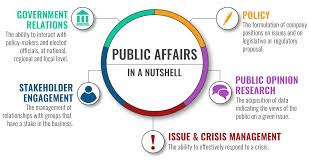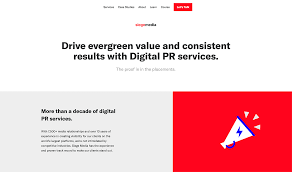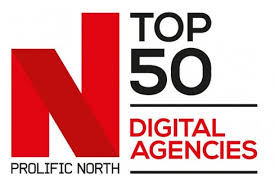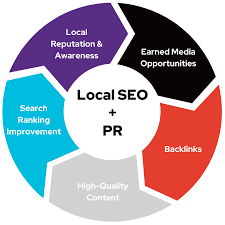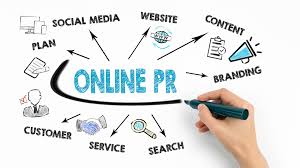Navigating the Business Landscape: The Strategic Importance of Government Affairs
The Importance of Government Affairs in Today’s Business Landscape
In today’s fast-paced and interconnected world, the role of government affairs in business has never been more crucial. Government affairs, also known as public affairs or public policy, refers to the function within an organization that is responsible for managing its relationship with government entities and influencing public policy.
Businesses operate within a complex regulatory environment where government decisions and policies can have a significant impact on their operations, profitability, and reputation. By engaging in effective government affairs strategies, companies can navigate this landscape proactively and ensure that their interests are represented and protected.
One of the key reasons why government affairs is essential for businesses is its role in shaping legislative and regulatory outcomes. By building relationships with policymakers, lobbying for favourable policies, and advocating for their interests, companies can influence the development of laws and regulations that impact their industry.
Government affairs also plays a critical role in risk management. By staying informed about upcoming legislation, regulations, and political developments, businesses can anticipate potential challenges and opportunities. This proactive approach allows companies to adapt their strategies accordingly and mitigate risks before they escalate.
Furthermore, effective government affairs can enhance a company’s reputation and credibility. By engaging with policymakers transparently and ethically, businesses demonstrate their commitment to compliance, good governance, and corporate social responsibility. This positive image can help build trust with stakeholders, including customers, investors, employees, and the wider community.
In conclusion, government affairs is an indispensable function for businesses operating in today’s dynamic business environment. By investing in robust government relations strategies, companies can navigate regulatory complexities effectively, influence policy outcomes beneficially, manage risks proactively, and enhance their reputation positively.
8 Essential Tips for Navigating Government Affairs Effectively
- Stay informed about current government policies and regulations.
- Build relationships with key government officials and stakeholders.
- Engage in public consultations and provide feedback on proposed policies.
- Monitor parliamentary debates and committee hearings for relevant discussions.
- Comply with all legal requirements to avoid potential penalties or conflicts.
- Contribute to policy development by sharing expertise and insights with policymakers.
- Be transparent in your interactions with the government to build trust and credibility.
- Join industry associations or advocacy groups to amplify your voice on key issues.
Stay informed about current government policies and regulations.
It is crucial for businesses to stay informed about current government policies and regulations to navigate the ever-changing regulatory landscape effectively. By keeping abreast of the latest developments in public policy, companies can proactively adjust their strategies, ensure compliance, and anticipate potential challenges or opportunities. Being well-informed about government policies enables businesses to engage in informed decision-making and advocacy efforts that align with their interests and objectives.
Build relationships with key government officials and stakeholders.
Building relationships with key government officials and stakeholders is a fundamental tip in effective government affairs strategy. By establishing strong connections with policymakers, regulatory bodies, and influential individuals, businesses can gain valuable insights, advocate for their interests, and shape policy decisions that impact their industry. These relationships not only enhance a company’s visibility and credibility but also create opportunities for collaboration and dialogue that can lead to mutually beneficial outcomes. Engaging with key government officials and stakeholders demonstrates a commitment to transparency, good governance, and constructive engagement in the policymaking process, ultimately strengthening the company’s position in the public arena.
Engage in public consultations and provide feedback on proposed policies.
To effectively navigate the realm of government affairs, it is crucial for businesses to actively engage in public consultations and offer constructive feedback on proposed policies. By participating in these consultations, companies can voice their perspectives, concerns, and suggestions to policymakers, influencing the development of regulations that directly impact their operations. This proactive approach not only demonstrates a commitment to responsible citizenship but also allows businesses to shape policies in a way that aligns with their interests and objectives. Through meaningful engagement in public consultations, organisations can contribute to the creation of a regulatory environment that supports innovation, growth, and sustainable business practices.
Monitor parliamentary debates and committee hearings for relevant discussions.
Monitoring parliamentary debates and committee hearings for relevant discussions is a valuable tip in government affairs. By actively following these proceedings, businesses can stay informed about the latest legislative developments, policy priorities, and potential regulatory changes that may impact their industry. This proactive approach allows companies to anticipate upcoming challenges, identify opportunities for engagement, and shape their government relations strategies effectively. Being aware of the discussions in parliamentary debates and committee hearings provides valuable insights that can help businesses navigate the complex regulatory landscape and advocate for their interests in a timely and informed manner.
Comply with all legal requirements to avoid potential penalties or conflicts.
It is crucial for businesses to adhere to all legal requirements in the realm of government affairs to mitigate the risk of facing penalties or conflicts. By ensuring strict compliance with relevant laws and regulations, companies can safeguard their operations, reputation, and relationships with government entities. Failure to comply with legal obligations can not only result in financial penalties but also damage a company’s credibility and standing within the industry. Therefore, prioritising adherence to legal requirements is essential for maintaining a positive and productive engagement with government authorities.
Contribute to policy development by sharing expertise and insights with policymakers.
An effective strategy in government affairs is to contribute to policy development by sharing expertise and insights with policymakers. By offering valuable knowledge and perspectives on relevant issues, businesses can play a proactive role in shaping policies that align with their interests and objectives. This collaborative approach not only enhances the quality of decision-making but also strengthens the relationship between companies and government entities, fostering a more constructive and mutually beneficial dialogue.
Be transparent in your interactions with the government to build trust and credibility.
To build trust and credibility in government affairs, it is essential to maintain transparency in all interactions with governmental entities. By being open and honest about your intentions, actions, and communications with policymakers, you demonstrate a commitment to ethical conduct and good governance. Transparency not only fosters trust between businesses and the government but also enhances your reputation as a responsible corporate citizen. This approach can help establish long-lasting relationships with policymakers and stakeholders, ultimately leading to more successful outcomes in influencing public policy and regulatory decisions.
Join industry associations or advocacy groups to amplify your voice on key issues.
Joining industry associations or advocacy groups is a valuable tip for businesses looking to enhance their government affairs efforts. By aligning with like-minded organisations, companies can amplify their voice on key issues that affect their industry. These groups provide a platform for collective action, enabling businesses to pool resources, share expertise, and advocate for common interests more effectively. Through collaboration with industry associations and advocacy groups, companies can strengthen their influence, engage with policymakers in a unified voice, and shape public policy decisions that impact their sector.



